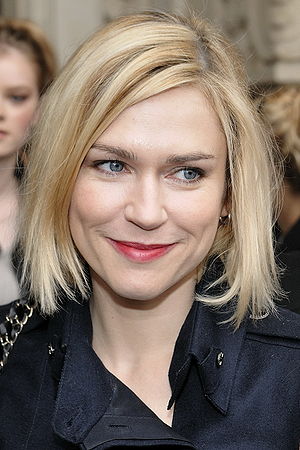The Barbarian Invasions (2003), by Denys Arcand, offers a few characters from Arcand’s 1987 film, The Decline of the American Empire. The ’03 product could almost suitably be called The Decline of the Canadian Nation, but first things first.
Remy (Remy Girard), a middle-aged history professor and staunch leftist, has long loved women and good wine but is now dying of an unspecified illness. His wife (Dorothea Berryman), who spurned Remy long ago for his philandering, is now at his side, and so is his estranged son Sebastien (Stephane Rousseau), a “capitalist” (says Remy) who assesses risk for a London investment bank. Realizing what lousy care his father is receiving from the state-supported Quebec hospital he is in, wealthy Sebastien resolves to better the ailing sensualist’s last days by purchasing favors and privileges. To begin with, he acquires for him a private hospital room and also contacts Remy’s old friends to request a courtesy visit. After heroin is recommended as a painkiller for Dad, Sebastien seeks to buy some, and his instrument for this is pretty Nathalie (Marie-Josee Croze), a junkie who is the daughter of one of Remy’s ex-mistresses. Nathalie, incidentally, falls in love with Sebastien even though the latter has a fiancee–Gaelle (Marina Hands).
One of the “barbarian invasions” of the film’s perfect title is indeed that of the inflow of illegal drugs–Canadian police can’t stop it–but we learn before long that it also refers to what al-Qaeda did on 9/11. Could it not be true as well that the sensualism of the sexual liberationist era is a barbarian invasion? Arcand, with his focus on Remy, prompts us to wonder. And where there is sexual liberation there is leftism–in a Western democracy, anyway. Invasions is one of the very few fiction films I know that distrusts, however quietly, liberal ideas and tendencies.
Canada’s socialized medicine comes in for a beating, and the warm attitude Remy once had toward Mao Tse-tung’s Cultural Revolution he now considers utter “cretinism.” Although the former prof can’t help seeing the non-intellectual Sebastien, who prefers video games to reading, as representing a kind of barbarian invasion, he himself abjectly fears he has lived a life without meaning, one of wasted effort. But does a liberal-minded, secular society, the film asks, produce wasted effort too?
Secular? Yes. A Catholic priest tells Gaelle there was a precise moment in 1966 that the people in his parish stopped attending church, never to return. Remy travels to Burlington, Vermont for medical tests and when a pert hospital employee welcomes him and Sebastien to the U.S.A., the twosome sarcastically reply, “Praise the Lord” and “Hallelujah.” What we have here are French Canadians mocking what they know to be a potent force in America–religion–when they must visit this particular country for superior medical service. Arcand is concentrating on the profound secularism so cherished by the Left and so incapable of arresting . . . the decline of the Canadian nation.
There is a problem with The Barbarian Invasions in that none of its people is a truly respectable or honorable human being, although Sebastien’s nascent love for his father is something to be esteemed. The film’s sophistication goes only so far, but at least it’s there. It’s an intelligent comedy-drama, remarkably successful at blending domestic content with social criticism. . . Arcand’s actors do everything right, with plenty of quiet power emanating from Rousseau and Croze. In fact, quiet power is all over this film.
The Barbarian Invasions is in French with English subtitles.
(Photo above of Marie-Josee Croze.)



Leave a Reply